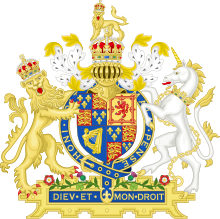
Back مستعمرة ملكية Arabic Kral koloniyası Azerbaijani Каронная калонія Byelorussian ব্রিটিশ রাজ-উপনিবেশ Bengali/Bangla Trefedigaeth y Goron Welsh Kronkoloni Danish Kronkolonie (Vereinigtes Königreich) German Kronkolonio Esperanto Colonia de la Corona Spanish Kroonikoloonia Estonian

A Crown colony or royal colony was a colony governed by England, and then Great Britain or the United Kingdom within the English and later British Empire. There was usually a governor to represent the Crown, appointed by the British monarch on the advice of the UK Government, with or without the assistance of a local council. In some cases, this council was split into two: an executive council and a legislative council, and the executive council was similar to the Privy Council that advises the monarch. Members of executive councils were appointed by the governors, and British citizens resident in Crown colonies either had no representation in local government, or limited representation in a lower house. In several Crown colonies, this limited representation grew over time. As the House of Commons of the British Parliament has never included seats for any of the colonies, there was no direct representation in the sovereign government for British subjects or citizens residing in Crown colonies.
The administration of Crown colonies changed over time and in the 1800s some became, with a loosening of the power of royal governors, self-governing colonies, within which the sovereign state (the UK Government) delegated legislation for most local internal matters of governance to elected assemblies, with consent of the governor, overseen by the Colonial Office and the Board of Trade and Plantations. The Colonial Office gave way to the Dominion Office for some of these territories in 1925. Elected lower houses had their beginnings in the House of Burgesses of the Colony of Virginia in 1619 and the House of Assembly of the Parliament of Bermuda in 1620. While initially limited in government even with an elected lower house, over the centuries in some Crown colonies, more independent authority was given.
All remaining British colonies, whether Crown (such as the Falkland Islands) or self-governing (such as Bermuda), were renamed "British Dependent Territories" from 1 January 1983 under the British Nationality Act 1981. Many British citizens in the colonies (with the exceptions of the Falkland Islanders and subsequently the Gibraltarians) found that their "Citizenship of the United Kingdom and Colonies" had changed overnight to British Dependent Territories Citizenship, a form of British citizenship that stripped them of some of their rights, including the right to reside and work in the United Kingdom.[clarification needed] From 2002, the dependent territories have been known officially as British Overseas Territories.[1]
- ^ "British Overseas Territories Act 2002". Gov.Uk. Archived from the original on 30 January 2016. Retrieved 11 July 2012.